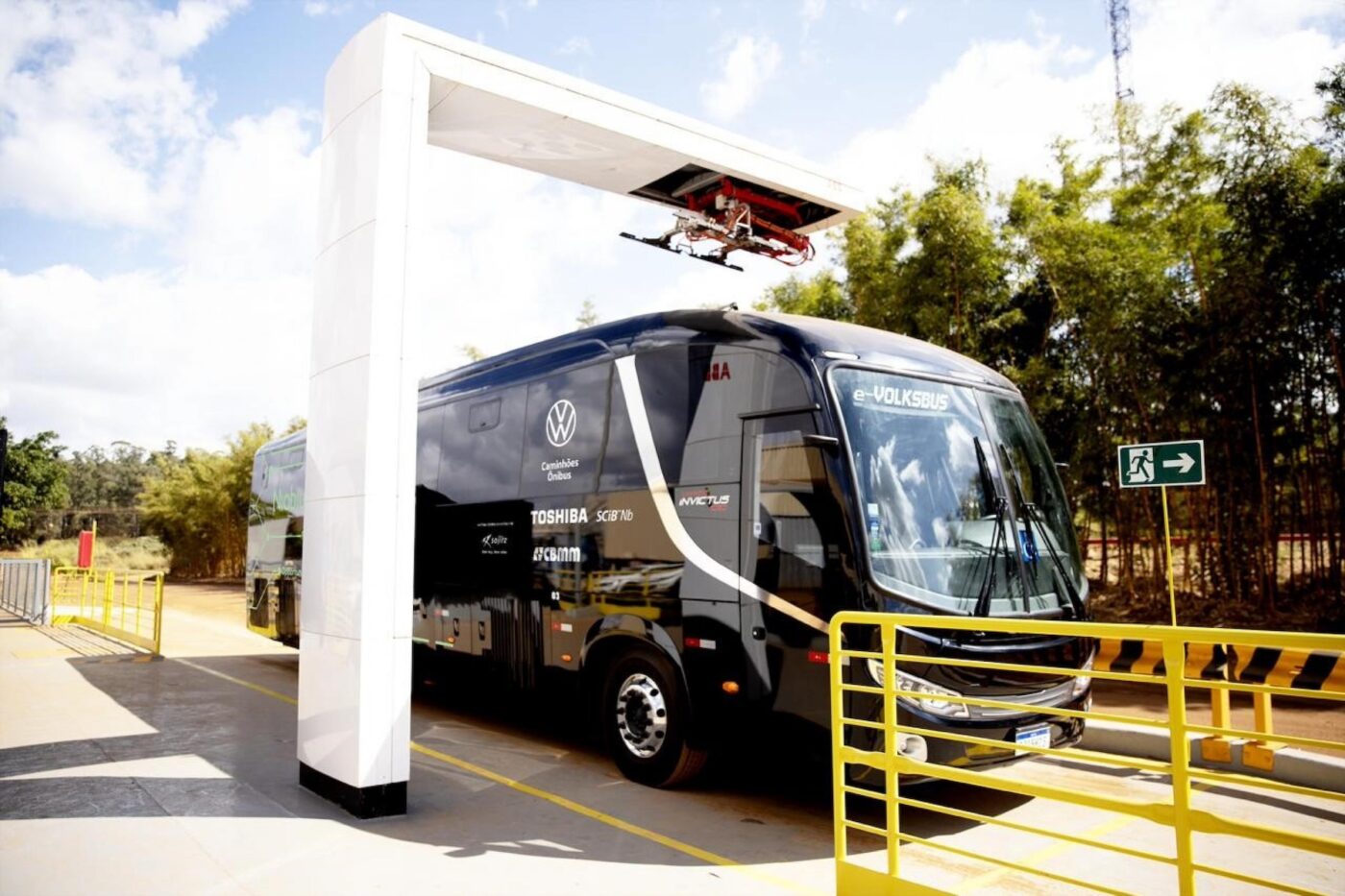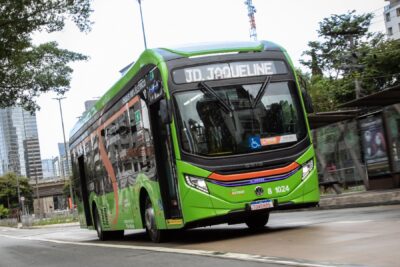Volkswagen Truck & Bus tests electric bus with ultra-fast charging battery in Brazil
According to the project partners CBMM, Toshiba and Volkswagen Truck & Bus, the major advantage of this technology is that it enables ultra-fast charging, with the vehicle’s maximum range being reached in just 10 minutes. In this specific case, the prototype built on an 18-ton chassis has an estimated range of 60 kilometres with a charging time of 10 minutes using a 300 kW pantograph. The electric bus is equipped with four lithium battery packs with a niobium anode, each with a usable capacity of up to 30 kWh.
One of the advantages of this system used in the electric bus battery is that the structure of the NTO anode allows extremely fast charging and operation at milder temperatures, which increases battery life and safety and reduces energy consumption due to the system’s lower cooling requirements.
The test period is indefinite and will be determined depending on the development of the application. In the medium term, trials will be extended to a small fleet for this validation. During this phase, all of the components will be monitored in real-time to analyse their behaviour to improve and develop the technology. Only after this phase can the next steps for the market launch of the electric bus be determined. The battery with NTO technology is expected to be available on the market in 2025.
“This project is strategic for us to start developing the next generations of electromobility. Seven years ago, we surprised the market with the first electric truck prototype made in Latin America. Now, we are once again anticipating global trends and seeking to lead the transformation of the industry, with reference partners such as CBMM, which will also support us by receiving the prototype for road tests in real operation at its plant in Araxá,” explains Roberto Cortes, President and CEO of Volkswagen Truck & Bus.
The Brazilian Metallurgy and Mining Company CBMM specializes in the processing and technology of niobium, extracted from its pyrochlore mine near the city of Araxá, in the Brazilian state of Minas Gerais. The company provides over 80% of the world’s supply of niobium metal and its alloys.
CBMM and the Japanese technology group Toshiba have been working together for six years to develop a technology for mixed titanium oxide with the addition of niobium for the anode of lithium-ion battery cells, known as NTO. In 2021, the project was then extended through a partnership with Volkswagen Truck & Bus that enabled the application of the battery in an electric bus through the development of thermal and energy management systems and ultra-fast charging.
The entire technology will be validated and perfected when used in CBMM’s real-world operations, where the vehicle will run daily on a fixed route, with charging at the pantograph at the beginning or end of the journey. The operation will provide data on the characteristics of both the NTO battery and the vehicle, to signal the adjustments required for future commercialisation.
Niobium anode material is also the focus of the British developers Nyobolt and Echion. Last year, Nyobolt demonstrated a charging process in which a vehicle with a 35 kWh battery was fully charged in less than six minutes. The corresponding battery technology is to be scaled up this year. Just a few days ago, Echion Technologies reported raising 35 million dollars in its Series B funding round, which will bring Echion’s niobium-based XNO anode material to market.





1 Comment